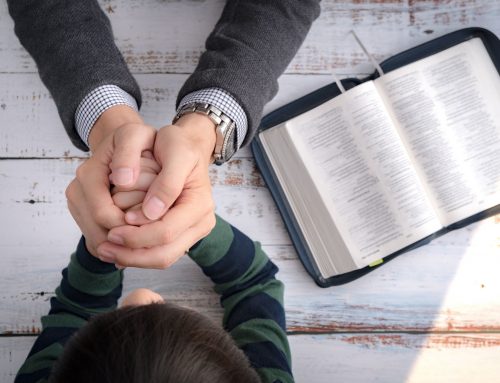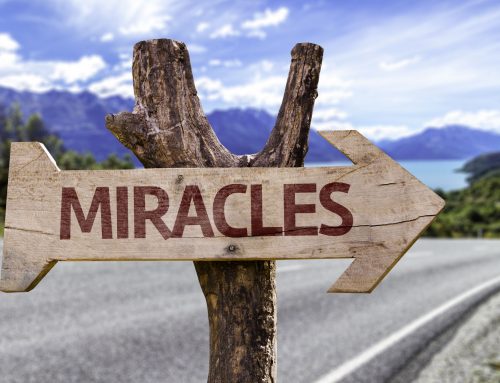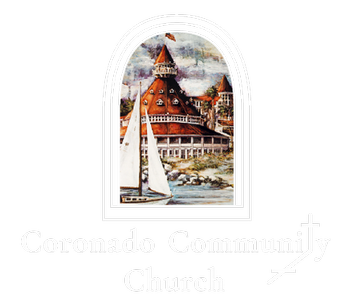Jeremiah 29: 1-7
A Sermon by Pastor Eric Smith
Published On: October 10, 2022
A Sermon by Pastor Eric Smith
Published On: October 10, 2022
Last week’s message finished with some thinking about how our experience of faith is shaped by expectation.
- What I expect from myself.
- What others have said about me that I have assimilated into my own expectations.
- What I see in others that I want to emulate…
- how I want to appear to others…
- how I want others to think of me.
Where this led is to affirm that God’s perfect purpose for you is that you to be uniquely who you are. That’s the best you can be. In being and becoming who you are, you can receive and experience the fullness of life that God offers). If you aren’t…you can’t.
Today we continue responding to the challenge of expectation.
Our scripture reading calls for a history lesson about ancient Israel – and a brief one will have to suffice.
In 586 BC the little land of Judah (that’s where we get the name Jew) was overtaken by the empire of Babylon. As you might imagine, this had a profound effect upon everyone. The citizens who had skills… like engineers, craftsman, physicians, administrators, and artists were relocated to Babylon to enhance the culture and the economy of the conquering country. The people of Judah didn’t have a choice.
Moving to Babylon wasn’t just a setback or an inconvenience for their lives. The Jews believed they owed their existence to God’s long ago promise to Abraham … of countless descendants and the promised land. That promise, that faith, was in their DNA – it was who they were.
Now the chosen people had no land, no king, and no Temple in which to worship. They felt that God had abandoned them.
They had the kind of questions that people have when tragedy strikes…
How could God let this happen?
How could God let this evil take place?
What will happen now?
Where is God?
My own life’s journey included growing up in Coronado in the 60’s and 70’s. Those were good years for many kids in many places – in Coronado, they were magical. However the magical experiences of growing up on the island did not prepare us for a few things in life.
Here’s one example:
Because of involvement in both athletics and student government, during high school, along with other classmates, I was invited to attend meetings of the Coronado Rotary club. In those days the Rotary Club met every Wednesday at noon in the Crown Room of the Hotel del. The men I met (it was all men in those days) were professional, well-spoken, and friendly. I knew many of them.
Quantum leap ten years forward: I was the pastor of my first church… the First United Methodist Church of Lake Elsinore. You may have driven past Lake Elsinore on I-15 at some time. It’s about 75 minutes north of here. Not a big place. Well 40 years ago it was a lot smaller than it is now.
The Episcopal priest in town was Father Jim Gunn. He introduced me to some folks and invited me to join him in attending a Lion’s Club meeting. Sure, I said… thinking, I know what service clubs are like. So I went with Father Jim.
At that time the Lion’s Club of Lake Elsinore met in a building that served several functions – it was called the Scout House. We drove out a dirt road and up to a well-built but shabby looking building. The inside pretty much matched up with the outside. This was not the Crown Room of the Hotel Del.
As we walked in some of the guys unlocked what appeared to be a couple of long doors. They opened them and, in a murphy bed sort of manner, a bar unfolded into the room Then the drinking began.
My experience of service clubs was significantly modified.
Here’s another more important thing I learned in Lake Elsinore.
I got to know that Episcopal Priest, Father Jim. He had retired from the Navy after 20 years. He had been a chief. He felt called to ministry and went to seminary. Lake Elsinore was his first church – he had been there for seven years when we met.
Father Jim wanted out of Lake Elsinore in the worst way. He didn’t like the church, the community, the weather, nothing… and he said so. He told everyone who would listen how badly he wanted to leave that place… including members of his congregation. He told me how he had been sending out letters and resumes to other churches for three years… but all he got back were polite letters of rejection. He couldn’t understand it.
Father Jim wasn’t a bad guy, he just didn’t feel like he belonged in Lake Elsinore. But I realized he was not orchestrating his exit in an effective manner.
It seemed clear to me that telling everyone who would listen how badly he wanted to be someplace else was not the way to open future possibilities.
From that day I embraced The First United Methodist Church of Lake Elsinore as the best church in Southern California! Even if no one else thought that, I told them it was. How great the people were, how much fun we had, what a wonderful place to live it was… you get the idea.
But get this… even though I initially manufactured that opinion, it began to be true. I practiced that truth, lived it, and damned if it wasn’t true.
Before three years were up, I was invited to the Claremont United Methodist Church located next door to the Claremont School of Theology. The seminary faculty attended that church – with ordained faculty members, retired missionaries and clergy there were 50 ordained ministers in that church. I accepted the invitation… and that’s a story of another day.
That lesson of Lake Elsinore was, You have to be where you are. Any other choice brings about varying degrees of unhappiness and can keep you where you don’t want to be for longer than need be.
Now here’s another kind of being where you are …
Jill Bolte Taylor is a Harvard Medical School research physician. Her PhD is in the field of neuro-anatomy. She is all about brains.
Twenty years ago she had a stroke. She lost her ability to speak, to understand, to write, and to walk. She recalled that when it happened the scientist in her kicked in and she thought, wow, this is cool.
She had to learn everything all over again; it took five years to get full coordination and eight years for full recovery. Because of her work, Time magazine named her one of the 100 most influential people of 2008.
Dr. Taylor knows about brain theory. Right brain – left brain – and how they each function.
Our left brain is all about judgment. It is analytical, measuring, assessing, and calculating.
It excels in naming and categorizing things, symbolic abstraction, speech, reading, writing, and arithmetic. It deals with memory of the past and anticipation of the future. It is also the side of the brain where worry and anxiety take place.
Our right brain on the other hand, functions in a non-verbal manner and excels in visual, perceptual, and intuitive information. The right brain processes information differently than the left brain. It seems to flourish dealing with complexity, ambiguity and paradox. The right brain is associated with the realm of creativity – and presence.
Dr. Taylor’s stroke took place on the left side of her brain; it stopped working for a while – and, she says, she entered into a sea of tranquility.
Now I am not a Harvard trained neuro-anatomist, but I think it is a reasonable surmise that when our brain activity is focused on past issues or future expectations – that is left brain activity.
When we choose to be where we are that is right brain activity.
Fair enough?
So here is the message that Harvard Medical researcher Dr. Jill Bolte Taylor brought back from her stroke: at any moment you can choose, you can shut down your judgmental left brain
and access your perceptual right brain and say, “Wow! I’m here!”
Being where you are is not just about physical location. This is a metaphor.
I have a Beverly Hills therapist. Nan Gold. When Karen and I decided to marry with four kids already in the mix we looked for some counseling to get our new lives launched in a healthy way. We talked with Nan. Ten years later I had doubts about ministry so I went to see her again. When I finished telling her the whole thing she said… you’re fine Eric… you’re a good minister… have you heard of mindfulness? It’s important.
You’ve heard of mindfulness. Some of you practice it. You can describe it as being where you are. That’s a kingdom of God practice, too.
It’s not always easy to be where you are. You may reside on the magical island of Coronado, but but live somewhere else. So many of us dwell in the past. The mistakes we made that we continually revisit. The tragedy that occurred that we can’t let rest. How sometime in the past was the best time of your life and your great desire is returning to those days.
Or you dwell in the anxiety of what might be coming. Examining all of the possibilities of “what happens if…?” Yes, it might be terrible… but may be not… and you corrupt the blessings and the joy God gives you today by not being where you are… rather than off in the future.
There are a hundred more examples – and you know which ones are true for you.
A prophet lived in Judah when the Babylonians carried off so many citizens into a strange life in a strange land. His name was Jeremiah. He didn’t go with the exiles to Babylon, he stayed behind in Judah. I mean… what good is a prophet when folks knew that God had abandoned them?
But Jeremiah didn’t see it that way. He went out and bought a field – it was a symbolic gesture pointing ahead to the day that he knew would come when the exiles would return from Babylon. Those Jews would someday return to Judah… just not right away.
The folks taking in their new lives in Babylon had been devastated. Their former way of life was gone. The homes they had built were gone. The patterns of their lives were forever altered. They lived in depression and despair. But the Babylonians treated them well. And Babylon was a pleasant city – full of life. The Jews were somewhere else… lamenting what they had lost… depressed about a future being thrust upon them.
Jeremiah knew this about his people. So he wrote them a letter…
He wrote:
4Thus says the Lord of hosts, the God of Israel, to all the exiles whom I have sent into exile from Jerusalem to Babylon: 5Build houses and live in them; plant gardens and eat what they produce … seek the welfare of the city where I have sent you into exile, and pray to the Lord on its behalf, for in its welfare you will find your welfare.
We call Jeremiah a prophet because the truth that he shared with his people in his day is God’s truth for all people of all places and all times. Three thousand years have passed and that truth is a powerful now as it was then…
Be where you are… and you’ll find peace within




